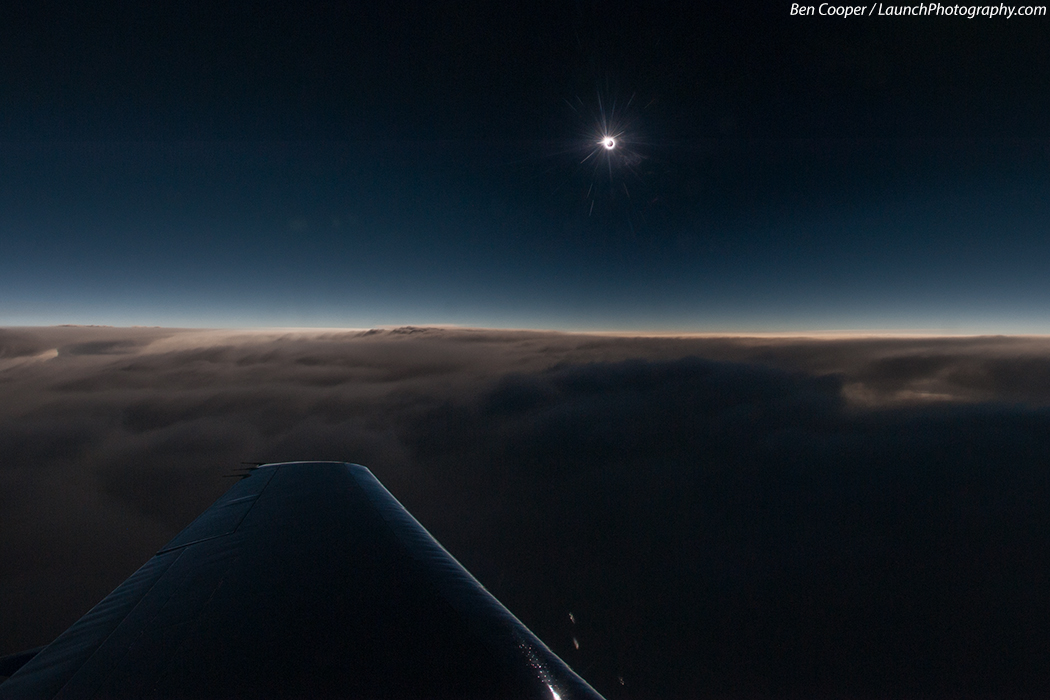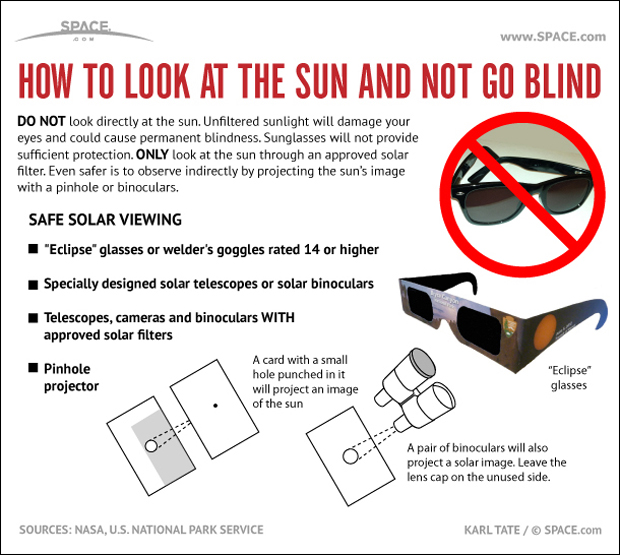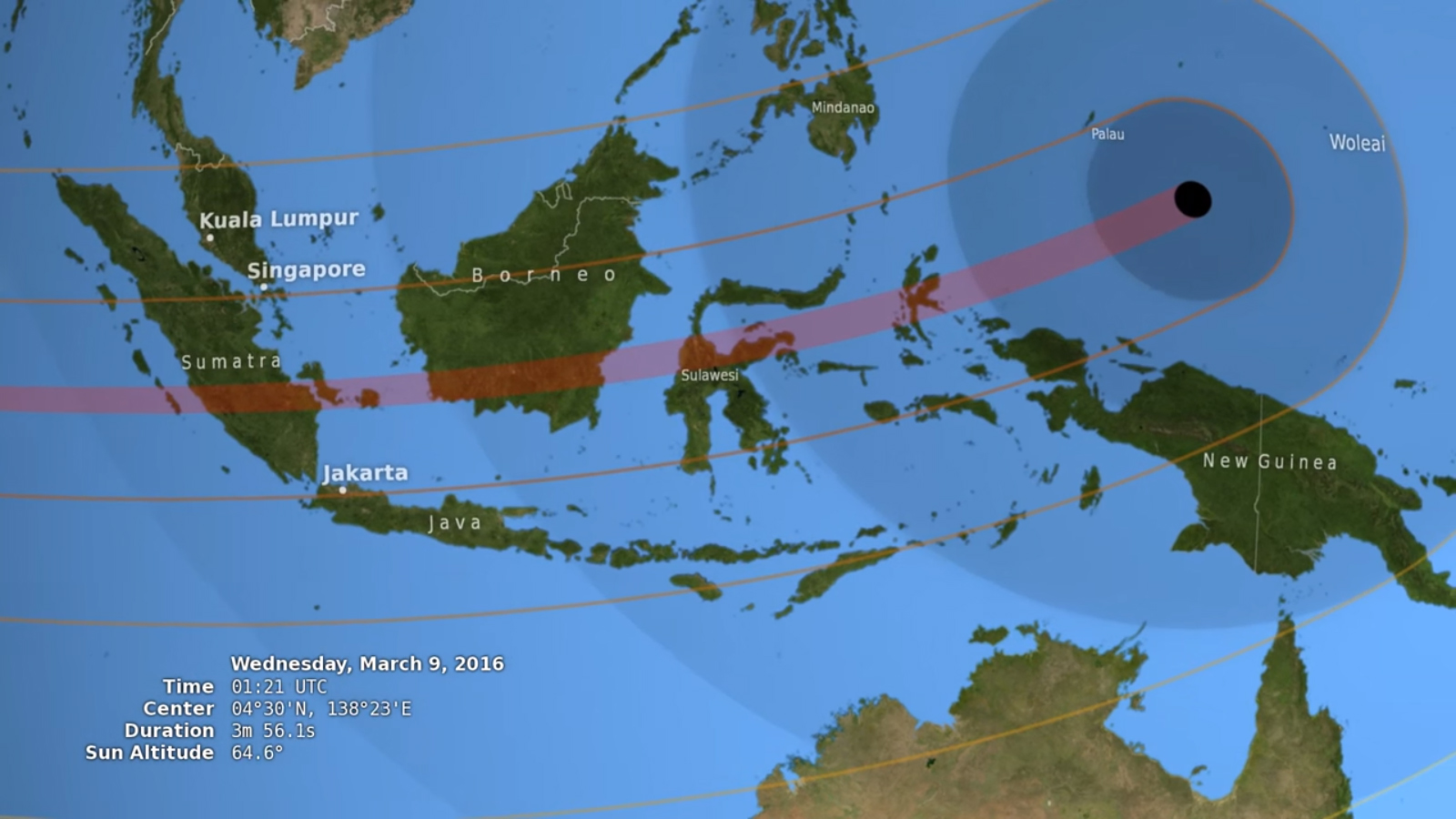Total Solar Eclipse Tuesday: How to Watch It Online

The sun will disappear completely behind the shadow of the moon in Southeast Asia tomorrow (March 8) in a total solar eclipse.
If you can't make it there in person, you can watch live via Slooh or NASA, in collaboration with Exploratorium and the National Science Foundation — and there will be plenty of opportunities to ask questions, learn about the eclipse and share photos as the moment arrives.
The online Slooh Community Observatory will host a live webcast between 6 and 9 p.m. EST (2300 and 0200 GMT) to watch the eclipse from Indonesia and "several other locations" along the eclipse path, which can be joined at Slooh.com; the period of totality (total eclipse) will begin at 7:37 p.m. EST (0037 GMT). The webcast will also visible at Space.com, courtesy of Slooh.
Throughout the days before Slooh's broadcast, astronomer Paul Cox will share details of his journey in Indonesia. The broadcast will be hosted by Cox and will include commentators such as solar expert Lucie Green and Slooh astronomer Bob Berman. Twitter viewers can ask questions using the hashtag #SloohEclipse. [Video: The Path of 2016's Only Total Solar Eclipse]

Before the eclipse happens, Slooh is asking fans to show how they safely plan to view the eclipse. Social media users can use the hashtag #ShadeUp on Instagram, Twitter and Facebook. Slooh is also asking its followers to post pictures of the eclipse on Twitter (tagging @Slooh) or Facebook.
NASA Television will start coverage of the eclipse at 8 p.m. EST (2500 GMT) on March 8, including a live view from the Federated States of Micronesia in collaboration with Exploratorium and the National Science Foundation. The broadcast will run at http://www.nasa.gov/ntv.
As the broadcast takes place, users of Twitter, Google+ and Facebook can ask questions using the hashtag #eclipse2016. There is also an official Twitter account for the eclipse (@NASASunEarth) and Flickr group, available at https://www.flickr.com/groups/eclipse2016/.
Get the Space.com Newsletter
Breaking space news, the latest updates on rocket launches, skywatching events and more!

Before the eclipse, at 2 p.m. Monday, solar scientists at NASA's Marshall Space Flight Center in Alabama will host a Facebook Q&A at https://www.facebook.com/nasamarshallcenter.
On Tuesday at 1 p.m., solar scientists at the NASA Goddard Space Flight Center will participate in an "Ask Me Anything" session on Reddit. The link will be made available on NASA Goddard's Twitter feed, @NASAGoddard.
Editor's note: If you safely capture an amazing photo of the March 8/9 total solar eclipse and would like to share it with us and our news partners for a story or gallery, send images and comments in to managing editor Tariq Malik at spacephotos@space.com.
Follow Elizabeth Howell @howellspace, or Space.com @Spacedotcom. We're also on Facebook and Google+. Original article on Space.com.
Join our Space Forums to keep talking space on the latest missions, night sky and more! And if you have a news tip, correction or comment, let us know at: community@space.com.

Elizabeth Howell (she/her), Ph.D., was a staff writer in the spaceflight channel between 2022 and 2024 specializing in Canadian space news. She was contributing writer for Space.com for 10 years from 2012 to 2024. Elizabeth's reporting includes multiple exclusives with the White House, leading world coverage about a lost-and-found space tomato on the International Space Station, witnessing five human spaceflight launches on two continents, flying parabolic, working inside a spacesuit, and participating in a simulated Mars mission. Her latest book, "Why Am I Taller?" (ECW Press, 2022) is co-written with astronaut Dave Williams.
